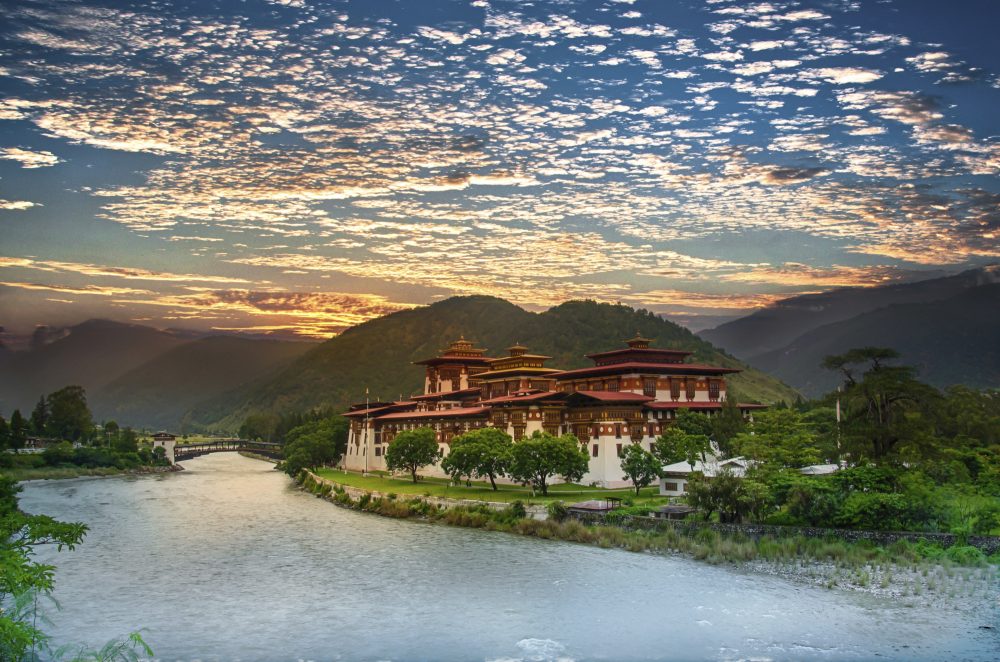
Introduction
Bhutan, a small landlocked kingdom nestled in the Eastern Himalayas, is often celebrated for its unique philosophy of Gross National Happiness (GNH). This innovative approach prioritises the well-being of its citizens over mere economic growth, making Bhutan an intriguing case study in balancing tradition and modernity. As the world grapples with various social and environmental challenges, Bhutan’s commitment to sustainability, culture, and happiness has garnered international attention.
Geography and Culture
The topography of Bhutan is a striking mix of towering mountains, lush valleys, and cascading rivers. Spanning around 38,394 square kilometres, this mountainous nation is home to diverse flora and fauna, much of which is protected within its 10 protected areas and four national parks. Bhutan’s cultural landscape is just as impressive, characterised by its vibrant festivals, traditional arts and crafts, and religious practices rooted in Buddhism.
Gross National Happiness
Introduced by the Fourth King of Bhutan, Jigme Singye Wangchuck, in the 1970s, GNH considers economic growth as one of the four pillars of happiness, alongside cultural preservation, environmental conservation, and good governance. This holistic approach has influenced policies across health, education, and sustainable development, ensuring that Bhutan prioritises the well-being of its people. The concept has sparked interest globally, leading to discussions on how happiness can be measured and achieved in societies.
Recent Developments
In recent years, Bhutan has taken significant strides towards modernisation while retaining its core values. The COVID-19 pandemic posed unique challenges for the remote kingdom given its reliance on tourism, which significantly declined during lockdowns. Nevertheless, Bhutan’s vaccination drive was highly successful, with over 90% of eligible citizens fully vaccinated by July 2021, one of the highest rates in the world. This preparedness has allowed the country to gradually reopen to tourists as of late 2022.
Conclusion
As Bhutan continues its journey towards modernity while upholding its cultural heritage and the principles of GNH, the kingdom remains a beacon of sustainability and happiness. With ongoing efforts toward environmental protection, preservation of culture, and economic development, Bhutan offers a compelling model for other nations seeking alternative measures of progress. Looking forward, the world watches closely as this tranquil kingdom demonstrates the importance of prioritising the well-being of its citizens in the face of global challenges.
You may also like

Discovering the Beauty and Culture of Norway

Exploring Monmouth: History, Attractions and Community

Exploring Wolverhampton: A Gateway to Culture and History
SEARCH
LAST NEWS
- Remembering Wendy Richard: The Promise to Co-Star Natalie Cassidy
- How Did Anglian Water Achieve an ‘Essentials’ Rating for Mental Health Accessibility?
- Shai Hope Leads West Indies in T20 World Cup Clash Against South Africa
- What We Know About Weston McKennie: Future at Juventus and Past at Leeds
- What We Know About the Upcoming Live Nation Antitrust Trial